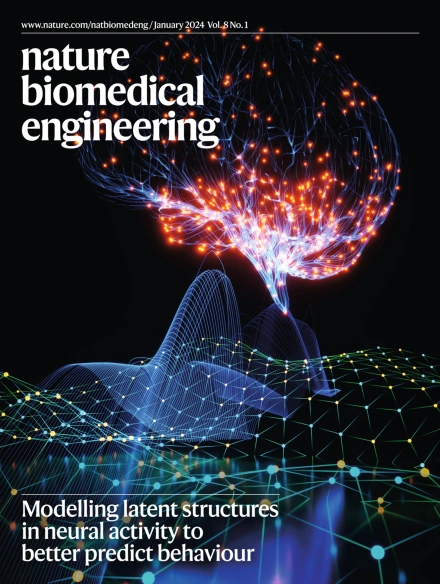靶向ccr5的异体γ - δ CD19嵌合抗原受体T细胞用于hiv相关B细胞恶性免疫治疗。
IF 26.8
1区 医学
Q1 ENGINEERING, BIOMEDICAL
引用次数: 0
摘要
免疫细胞疗法为癌症治疗提供了一种很有前途的方法。虽然自体嵌合抗原受体(CAR) T细胞已经取得了成功,但生产过程耗时、成本高且患者特异性强。γ - δ (γδ) T细胞有望用于“现成的”CAR - T细胞治疗。然而,γδ CAR - T细胞的临床翻译受到低频、对基因操作的抗性和扩增后的晚期分化的阻碍,限制了治疗的可行性。在这里,我们展示了一种体外激活和扩增外周血γδ T细胞的方法,促进了高速率的基因编辑和高效的CAR整合。利用人工抗原呈递细胞,我们生产了分化程度最低、功能强大的γδ CAR - T细胞。通过将美国食品和药物管理局批准的CD19 CAR靶向CCR5位点,我们产生了CCR5缺陷的γδ CD19 CAR - T细胞(γδ CCR5KI-CAR19),其表现出对hiv介导的衰竭的抵抗和对B细胞淋巴瘤和白血病的强大抗肿瘤反应。γδ CCR5KI-CAR19 T细胞能够免疫治疗hiv相关的B细胞恶性肿瘤。这些研究为大规模开发有效的同种异体γδ CAR - T细胞用于多种免疫疗法提供了临床前证据。本文章由计算机程序翻译,如有差异,请以英文原文为准。
CCR5-targeted allogeneic gamma-delta CD19 chimeric antigen receptor T cells for HIV-associated B cell-malignancy immunotherapy.
Immune-based cell therapy offers a promising approach to cancer treatment. While autologous chimeric antigen receptor (CAR) T cells have shown success, production is time-consuming, costly and patient specific. Gamma-delta (γδ) T cells are promising for 'off-the-shelf' CAR T cell therapy. However, clinical translation of γδ CAR T cells is hampered by low frequency, resistance to genetic manipulation and advanced differentiation after expansion, limiting therapeutic feasibility. Here we demonstrate a method for in vitro activation and expansion of peripheral blood γδ T cells, facilitating high rates of gene editing and efficient CAR integration. Using artificial antigen-presenting cells, we produce minimally differentiated, highly functional γδ CAR T cells. By targeting a US Food and Drug Administration-approved CD19 CAR to the CCR5 locus, we generate CCR5-deficient γδ CD19 CAR T cells (γδ CCR5KI-CAR19), which demonstrated resistance to HIV-mediated depletion and robust antitumour responses against B cell lymphoma and leukaemia. γδ CCR5KI-CAR19 T cells enable the immunotherapy of HIV-associated B cell malignancies. These studies provide preclinical evidence supporting large-scale development of potent allogeneic γδ CAR T cells for diverse immunotherapies.
求助全文
通过发布文献求助,成功后即可免费获取论文全文。
去求助
来源期刊

Nature Biomedical Engineering
Medicine-Medicine (miscellaneous)
CiteScore
45.30
自引率
1.10%
发文量
138
期刊介绍:
Nature Biomedical Engineering is an online-only monthly journal that was launched in January 2017. It aims to publish original research, reviews, and commentary focusing on applied biomedicine and health technology. The journal targets a diverse audience, including life scientists who are involved in developing experimental or computational systems and methods to enhance our understanding of human physiology. It also covers biomedical researchers and engineers who are engaged in designing or optimizing therapies, assays, devices, or procedures for diagnosing or treating diseases. Additionally, clinicians, who make use of research outputs to evaluate patient health or administer therapy in various clinical settings and healthcare contexts, are also part of the target audience.
 求助内容:
求助内容: 应助结果提醒方式:
应助结果提醒方式:


